|
Laura reporting:
As TTJ and the combined Jericho-Underhill Food Hub tackle issues around local food access, it’s inspirational to see what’s happening in other Vermont towns. Jenevra Wetmore, executive director of Sustainable Woodstock since October of last year, presented a talk June 24 at the JCC on community gardens, Grow Your Own, and other programs in southern Vermont. There are two community gardens in Woodstock; one at Billings Farm and the other, King Farm, supported by the Vermont Land Trust. The gardens are no till and organic. About thirty families and organizations use them, with participants paying a sliding scale fee and serving two volunteer days per year. These community gardens also provide hundreds of pounds of produce for the Woodstock Food Shelf. Jenevra touched upon some of the many challenges they’ve faced, including erosion (caused by placement of beds too close to a brook), invasives, and jumping worms. There is a part time garden coordinator; Jenevra stressed that most important quality of the coordinator is people skills rather than gardening knowledge. Grow Your Own Garden program, started during Covid, supports people who couldn’t otherwise afford to garden, providing free kits of seedlings, seeds and beginning gardening book. Jenevra said that in the last four years, it has served 700 people in both Woodstock and surrounding towns. Sustainable Woodstock is proud of their work at Riverside Mobile Home Park, a place that has contaminated soils and periodic flooding. They set up nineteen raised beds there this year, enabling residents to garden in spite of the odds. Much talked about here, a community kitchen to process food and hold classes, etc. is now being organized in Woodstock; the local high school and Vermont Land Trust are combining forces to get it off the ground with Sustainable Woodstock offering their support. Jenevra said people show up for big things, “community barn raising events” she called them. For example, Sustainable Woodstock hosts yearly Earth Day events; other activities include workshops (a Gardening for Nature series last year), online film series and monthly Green Drinks events. Weekly columns in the local paper keep people informed. Organizers here have much to learn from the numerous activities of Sustainable Woodstock; for more details check out: www.sustainablewoodstock.org Dave here: Congratulations from the Transition Town Jericho team to 2024 contest winners! The purpose of this contest is to contribute to our town's journey toward resiliency and self-sufficiency. We hope that, in a small way, these kids can learn about gardening firsthand, understanding that sowing and growing seeds are fundamental to where food comes from and how it provides for families. Thanks to the Town of Jericho for funding the project again this year and to Geoff Cole for providing the trailer for transporting the soil and helping make the garden deliveries along with Laura and Dave. Also a shout out to Lisa Hoare for helping build the raised garden beds and joining for deliveries as well. This year we had nine winners and are donated the tenth bed to the The Children's Institute at Jericho Inc. held at the Good Shepherd Lutheran Church. Now I'd like to introduce you to this year's winners; hover your curser over their picture to see what they said they want to grow in their garden. Several of our competitors drew pictures of their gardens to be, enjoy! The Transition Town Jericho Team will be out to visit the gardens late July or Early August to see how the gardens are growing. Stay tuned for that report with some more pictures.
 Laura here: On Earth Day (April 22), TTJ held a Soil Health panel discussion for an audience of over thirty folks. The panel consisted of local farmers and homesteaders, sharing wisdom gathered over years of experience. A few highlights are below, and to access the entire event, go to: https://archive.org/details/ttojhealthy-soil-healthy-earth-04222024 Christa Alexander from Jericho Settlers Farm kicked off the discussion, talking about soil health within tunnels, hoop and green houses. She recommended doing ‘saturated media soil tests’ for soils used year after year. These tests reveal what nutrients are immediately available within soils, as many get depleted over time and salts accumulate. The latter can be thwarted by moving around the tunnels, Christa said. Watering covered plants is also a challenge; you can let rain in or irrigate, among other options. She talked about managing various crops differently, based on their needs; for example, salad greens are light feeders, whereas tomato plants are heavy feeders. Tom Baribault, an agricultural biochemist at UVM, talked about managing soil for nutrient rich produce. The history of the lands we grow on determine conditions we start with. Tom’s land for example, had been hayed for years. He gradually got away from heavy tilling, and simply uses a broadfork for aerating the soil. Repeated rototilling makes for more bacteria rather than healthy fungi, and adds to carbon dioxide in the atmosphere. Ultimately, no till means less work and fossil fuel inputs, though more weeding and hands-on work may be necessary. Tom introduced new terms like glomalin, humates, and arbuscular mycorrhizal fungi (amfs) in regard to soil health. He said techniques like cover cropping, off season composting, and crop rotation are important both for both soil and plant health. Tucker Andrews from Bone Mountain Farm talking about soil testing, saying it is a “a snapshot in time”, just one data point in soil management. He said soil testing is especially important when breaking new ground, for knowing what’s there and advised doing multiple soil tests in order to observe data collected over time. He recommended observing your soil as much as possible; learning its ecology, the living aggregates in the soil, how it pools after rain. Also observing what’s readily growing there. For example, sedges indicate wet and acidic soil; mullein, recently disturbed soil, possibly lacking in nutrients. Tucker stressed the importance of PH and organic matter in soil as well. Reed Sims, retired Soil Scientist talked about thinking of soil as an ecosystem; understanding the abundance of activity beneath the surface as well as above. Having access to a wide variety of organic matter is an advantage of home gardening, and doing your own composting is advantageous. Organic matter in soil can serve as a buffer for PH and even raise levels. Loam soil is best, striving for a balance of clay, sand and silt components. Many thanks to Angelike Contis and her team at MMCTV public access TV, for filming this event! 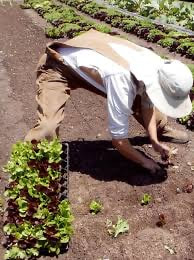 Laura Oliver, of the Jericho Seed Library, gave her third annual TTJ “Starting Seeds with Ease” talk on March 18 at the Jericho Town Library. Twenty-four folks filled the space, getting motivated and informed in the first gardening step for many! Whys Laura talked about the advantages of starting ones own seeds, saying that if you do a good job, your seedlings will be less stressed and healthier; plus, you’ll probably save money. She emphasized not starting them too early. Read the seed packets for when to start particular seeds indoors as well as a lot of other useful information. For plants with particularly long growing seasons such as brussel sprouts, starting them indoors provides a headstart. It also makes sense to start head lettuce indoors, whereas baby lettuce does better with direct planting. She named several other plants that simply do better with direct planting in the garden: peas, beans, corn, root veggies, cilantro, melons and squash. Trays Wind strip trays have become Laura’s number one choice in seed starting. Since they’re made of hard plastic, they’re economical, environmental and long lasting. They’re also less finicky to work with than soil blockers, Laura’s number two choice. Another option is up cycled plastic containers such as yogurt, but they’ll need holes drilled in the bottoms. While peat pots and newspaper crafted containers can work, egg cartons should be avoided, as the seedlings run the risk of becoming root bound. Soil and Prep Laura recommends using Vermont Compost Company’s Fort Vee mix for starting seedlings and Neptune’s Harvest fish emulsion for applying after three weeks. Laura advised placing two seeds per cell, perhaps more if the seeds are old, to ensure germination. Planting depth should be roughly two times the size of the seed. She was emphatic about growing just one plant per cell, and thinning with scissors rather than pulling. Water/heat/light To prevent damping off (a fungus disease seedlings are prone to getting) wait until the top of soil dries out and don’t over water! While heating pads are a great aid to germinating the seeds, Laura recommended not covering them with clear plastic domes. Remove seedlings from the heat and place under lights as soon as possible after the seeds germinate. Six inches is ideal from light source to seedlings. Starting with 18 hours of light per day at first, working ultimately toward 16 hours. Hardening off A necessary step before plants are transplanted to the garden, hardening off prepares seedlings for their placement in the garden. Place trays/pots outdoors, sheltered from wind and sun; the latter should be partial or filtered. You can start with six hours per day and work up to more, bringing them in at night unless it’s very warm. Once it’s consistently over 50 degrees at night, plants are safe to plant outdoors (they can also be covered for protection). Transplanting Make sure seedlings are well watered! If they’re root bound, you should carefully untangle them and spread roots in different directions. Applying fish emulsion when transplanting will give them a nice boost of nutrition. Soil testing Laura highly recommended this and...now is the time! https://www.uvm.edu/sites/default/files/Department-of-Plant-and-Soil-Science/AGTesting/Garden_hort_questionnaire.pdf More information Check out Laura’s two previous Seed Starting presentations, reported on this blog in both March 2022 and 2023...good luck!! Laura reporting:
Folks from Jericho and Underhill came together yesterday for a first meeting of the joint Jericho and Underhill Food Hub. A baker’s dozen from the sister towns discussed combining forces to amplify efforts toward more local food production and access to local food. While there was talk of what the future may hold, i.e. commercial kitchens, farm to school programs, local food celebrations, etc., some activities are happening already and can be supported and enhanced by this group and town residents. For example, a communal potato patch is being planned on one of two possible sites in Underhill. There was talk around having open planting and picking days for families to both educate and feed more people. A community dinner takes place during winter months at Underhill’s town hall following the Stone Soup concept. For summer months, a community bake is in the planning stage in Jericho, modeled after an existing event in Johnson. Ongoing in Jericho, there is the kid’s garden contest, extra row harvests as well as the community edible landscape. March kicks off the garden education series at the Jericho Town Library with “Seed Starting with Ease” led by Laura Oliver. The conversation included bringing back some school gardens that have gone by the wayside, supporting more farmers and local produce at the farmer’s markets, and helping create additional farm stands and farm stores, such as the one planned at Chamberlin’s Farm in Underhill. The next meeting of this incipient group will happen on March 20. We’ll cover vision and organization of the group, as well as establishing groups to tackle various projects ; hope you can spread the word and join us! Dave reporting:
As we approach the 2024 Town Meeting Day, the Jericho Food Hub Task Force (JFHTF) wrapped up its first year by bringing together towns folks and Jericho/Underhill farmers to gather and share information. In cooperation with the Underhill Local Agriculture and Local Foods Initiative, JFHTF invited local farmers to attend the January 20 meeting to discuss local food issues and how best to cooperate and build our local food hub. Representatives from The Farm Upstream, Chamberlin's Farm, Settlement Farm, Jericho Settlers Farm, Keszey Farm, Ash Grove Farm, and Birchhill Sugar Works attended the meeting as well as residents from both towns. The conversation largely focused on how to make local foods more available. Areas of discussion included: how to encourage people to purchase local foods, how to educate people on the benefits of preparing and eating local foods, and how to assist in the affordability of local foods while supporting farmers in making a viable living. From the conversation these thoughts and future objectives were shared: • A farm to school program was discussed and the need for a coordinator to make it work. • Creating a food home delivery program, and/or incorporating local foods in existing food delivery systems. • Connecting with UVM’s Extension Service food and nutrition program • Working with and strengthening supports farmers already have. • Listing local farms and resources online to help consumers make connections. • Taking advantage of the Farm to Plate on-line map of farms. • Helping farms with grant writing to better utilize funding resources. • Better marketing of existing farm stands. • Hosting a summer food celebration (at farmer's market) to highlight local farms. • Sponsoring social events to bring farmers and town residents together for community building. • Supporting Chamberlain's Farm’s effort to create a farm store. (Other farmers mentioned developing on-farm stores and thought that a food hub would help them as well) Next Steps: There was consensus around the importance of community building, celebrating local food and food education, ie, the importance of access to fresh local food and food preparation. In addition to ongoing education and promotion of our local farms, these are all things that could be objectives of the Underhill and Jericho committees in 2024. Specific projects could include supporting Chamberlin’s farm store and other local farm stores, organizing a community dinner and promoting a community supported planting project. Want to get involved? If you would like to get involved with the Jericho/Underhill Food Hub project, please contact us by emailing: [email protected]. Our next committee meeting will be February 28th at 7pm on a zoom call. The next farmer’s meeting will be in April, at a date and time to be determined Dave here, Since the town vote in March 2023, The Jericho Food Hub Task Force has been working to identify the best ways to insure that the task force mission has been achieved. As we head into 2024, we want to illustrate that a Food Hub concept is something that can benefit the Jericho citizens and local farmers. Since Jericho and Underhill are often partners in providing services, the task force has invited a team from Underhill to join in this mission. We hope that by broadening the scope that we can better serve both communities and offer more options to its respective citizens. Some of the highlights from this year include:
On January 20th, 2024, 1-3pm, Jericho and Underhill Farmers will meet to discuss how a Food Hub organization might be able to help them producing and distributing products in Jericho and Underhill. That meeting will be held at the Deborah Rawson Memorial Library. Survey as well: If you are a farmer in Jericho or Underhill, Vermont, we would like to hear from you. Please go to https://forms.gle/YmN6QvNaq9Wp9Jk9A In that survey, you can let us know if you'd like to attend that meeting on January 20th.
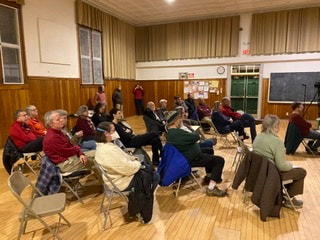 Laura, here: “The real pleasure is not just the delicious food one gets to eat, but the abundance of new relationships that are formed, the growing knowledge of where I live — the people and the geography of where I live,” -Bill McKibben (Addison County Independent, 2007) Our transition town group recently hosted Bill McKibben to talk about his experience eating only local foods from within 100 miles for roughly a year. Though he embarked on this journey nearly two decades ago, it is perhaps even more relevant today. A nice turnout for the meeting with 18 folks joining us online and 25 people in person at the Community Center. This meeting can be watched online, thanks to Angelike Contis and the team at Mt. Mansfield Community TV; use this link: https://archive.org/details/transitiontownjerichomckibben11272023 I’ll include a few tidbits here: At the time of McKibben’s 100-mile experiment, the localvore movement was gaining hold, and CSAs and farmer’s markets were increasing in Vermont and beyond. While the commitment to eating local foods took time and effort, McKibben said it had its rewards, including getting to know more farmers in the Champlain Valley. He said, “we never ran out of interesting things to eat” including fish (from hydroponic systems), root crops, cheese, maple syrup and honey, among other things. As the main cook in his family, McKibben allowed himself the ‘Marco Polo rule’ using salt and spices from afar. He said the hardest part was obtaining grain for bread. Luckily, Ben Gleason of Cornwall, was just bringing back grain growing in Vermont during that time. Gleason was also supplying Otter Creek Beer, adding some libational pleasure to the yearlong experiment. McKibben touched upon alternative energy and climate change in the talk, saying the latter is a growing danger to our food supply. He sees time running short, saying “the most important thing an individual can do is become less an individual; join together with others in movements large enough to make changes...” McKibben shared a question he once asked farmer/politician Dave Zuckerman around how long he thought it would it take for Vermont to become food self-sufficient. Zuckerman responded by saying six months (if we really needed to!) Following the talk, those of us present including one young farmer, seasoned homesteaders, gardeners and activated citizens alike, conversed about the many aspects of trying to localize our food. Going home, I stepped out into the full moon night, dreaming of the possibilities.... Dave here reporting on the October presentation: Reed Sims, from Jericho, a retired soil scientist and member of the Composting Association of Vermont, presented a discussion covering the joy, the science, the soil and garden benefits, and the integration of composting into the family routine. There was hands-on participation, recipe guidelines, and mature compost results to touch and smell. Reed discussed compost's role in preparing gardens for overwintering, and what to do if your compost appears to have failed. Reed was joined by 14 people who all had composting experience, but were ready to learn more. He told us that anything organic in nature can be added to a compost pile. And by maintaining the pile by turning it to ensure there is plenty of oxygen for the microbes will enhance the piles ability for making the usable compost earlier. It is important to have both "greens and browns" in your composting mixture. Greens can be composed of grass clippings, fruit peels, coffee grounds and other nitrogen rich structures, and browns can be straw and hay or other woody or paper materials. Do not add meat products to the pile if you have problems with animals and cannot get the pile temperature hot. News paper is great to add to the compost, shredding it into strips is recommended as the microbes like to adhere to the edges of the paper. breaking the paper down faster. You can compost in the winter months keeping in mind that it will freeze, so leave lots of room for your pile to grow during the colder months. If your compost pile starts to smell. it is an indications that it is getting to anaerobic. So with a little effort turning the compost, air will be re introduced to the composting system and the microbes will be able to do a better job with less smell. Indoor composting can take place with the help of the red wiggler worm and worm composter. The worm composter is a multi-level bin that allows the worms to migrate between the levels consuming your composted waste and leaving behind worm castings and compost suitable for using with your plants. The worms also leave behind a liquid called "Worm Tea" that can be used as fertilizer for your plants. It was great to have Reed with us sharing composting techniques with us. Thank you Reed for pulling this presentation together!
Dave here: As the summer of 2023 winds down, the Kids Garden Contest participants shared the results from their gardens in which they planted, tended and harvested. As with any garden project the kids had varying results, but we saw some great produce come from their gardens. Transition Town Jericho thanks the Town of Jericho Select Board members for sponsoring the Kids Garden Contest again in 2023. This financial gift allowed TTJ to purchase the supplies that were needed for the kids to get their gardens started. The kids answered some survey questions to let us know how it went: List the plants you chose to grow in your garden: -Cucumber tomato pumpkin peppers string beans corn other squash -Yellow scallop summer squash -Cherry tomatoes, beets, radishes, snap peas, and cucumber -Basil, tomatoes, arugula, calendula, onions, beans, sunflowers -carrots, pumpkins, sunflowers, pole beans, oregano, garlic, tomatoes, jalapenos, spinach, boston lettuce, strawberries -Zucchini, potato, basil and string beans Compare the taste of your vegetables with those you would buy at a grocery store -My cucumbers were juicy compared to groceries -The scallop summer squash was so yummy roasted with olive oil, salt and pepper! -The strawberries were sweeter than at a grocery store -The carrots were sweet and delicious! -Basil and arugula where better than the store, we didn't have as much luck with the other plants -Homegrown is always best, but this season brought challenges and we had a very sorry garden this year. -My potatoes were the family favorite at a recent family pot luck dinner! Did you have unexpected visitors to your garden? -I saw worms, ground bugs, flying bugs, underground bugs -Due to the compost, bugs loved the garden. We saw lots of worms and bugs in the soil when we had to dig it up! -Frogs!🐸 -Yes, something ate most of our cucumbers! We saw lots of bugs too. -There weren't too many visitors to the garden other than snails. -Lots of baby bunnies (so cute- but so destructive) -We did see bugs, worms, and grubs, but did not have any problems with our harvest When you plant your garden next year, what things would you change and why would you change them? -We would make the spaces bigger so our squash has more room -We hope to plant a new garden this year and plan to make it bigger. We learned a lot from the process of making this garden and look forward to growing lots of flowers and vegetables! -I would put my tomatoes in a green house so it's hotter -We will cover the plants right away so the animals don’t eat them. We will also label the plants as soon as seeds go in the ground -Different tomato plants and add zinnias -We will rotate our garden beds and move the raised beds away from the chicken run. We had the raised beds fenced off- but our chickens still liked to get involved. -I will plant the potatoes farther apart so they increase in size. Any other comment or story you would like to share with us about your garden experience
-Our experience being first timers was good. We were actually able to grow things -Thank you for the education you provided when dropping off the garden supplies. We learned a lot and had fun even though our garden experience this year didn't turn out as expected. -This was a good starting experience. We learned a lot and are excited to try again next year. Thank you! -Juniper noticed the tomato plants didn't start off. They looked dead but came back to life. Dad didn't think they were going to make it but Juniper believed they would. It took all summer but they came back. -Hoping for a drier and less flooded summer next year! -We THANK YOU for your generosity in gifting us this garden. |
Click to set custom HTML
|
||||||||||||||










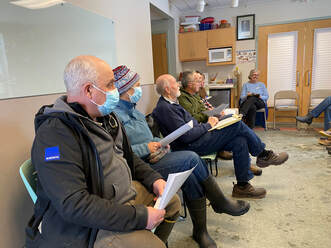
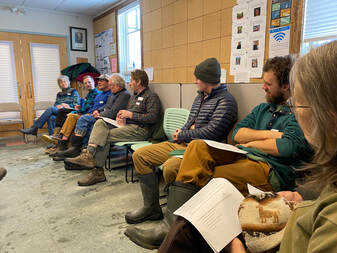
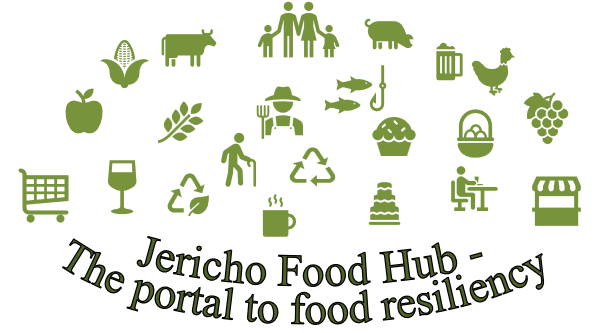
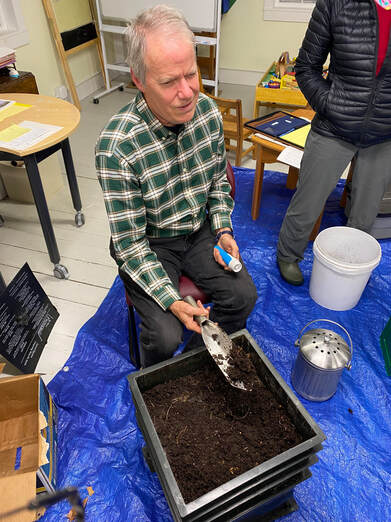
 RSS Feed
RSS Feed
